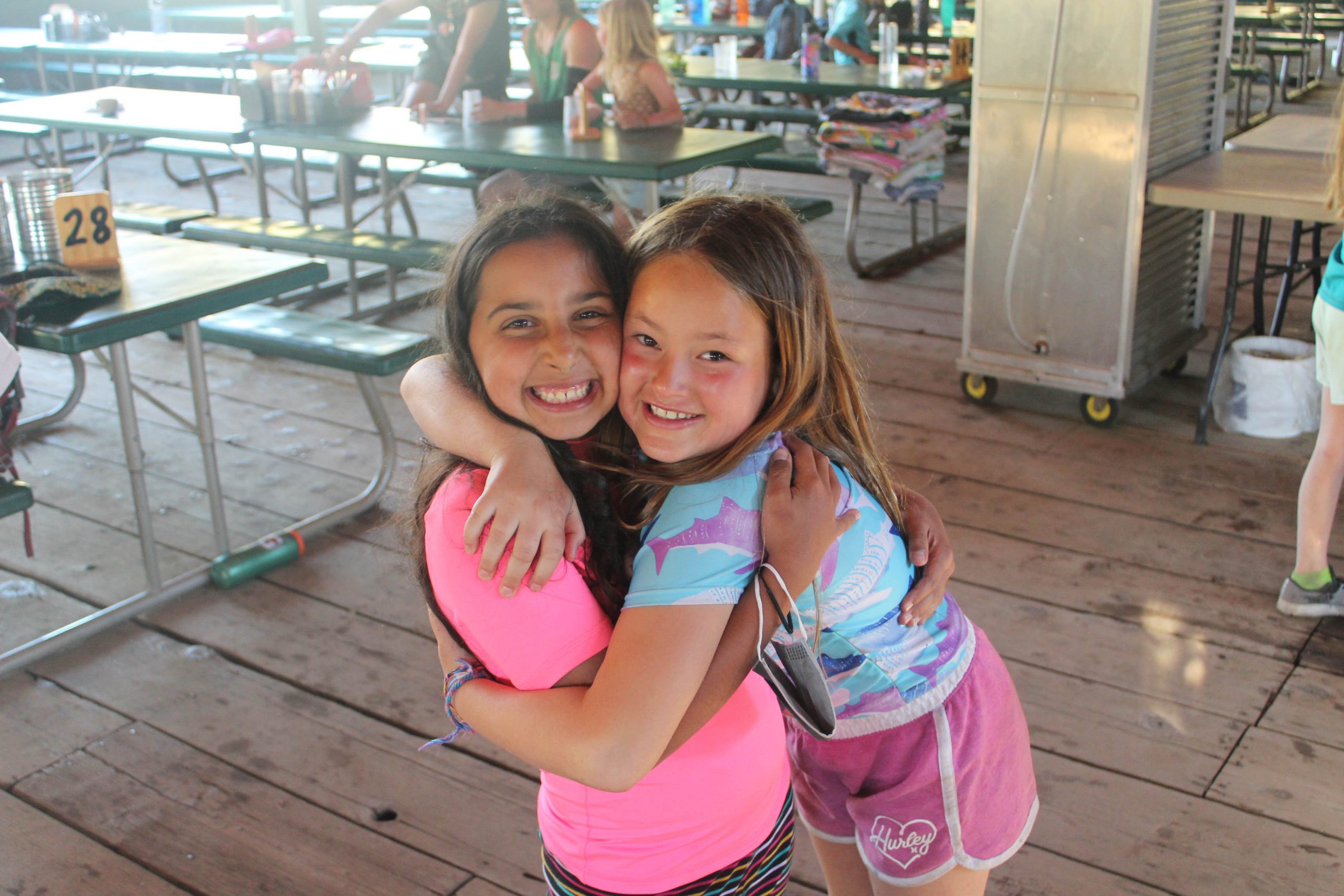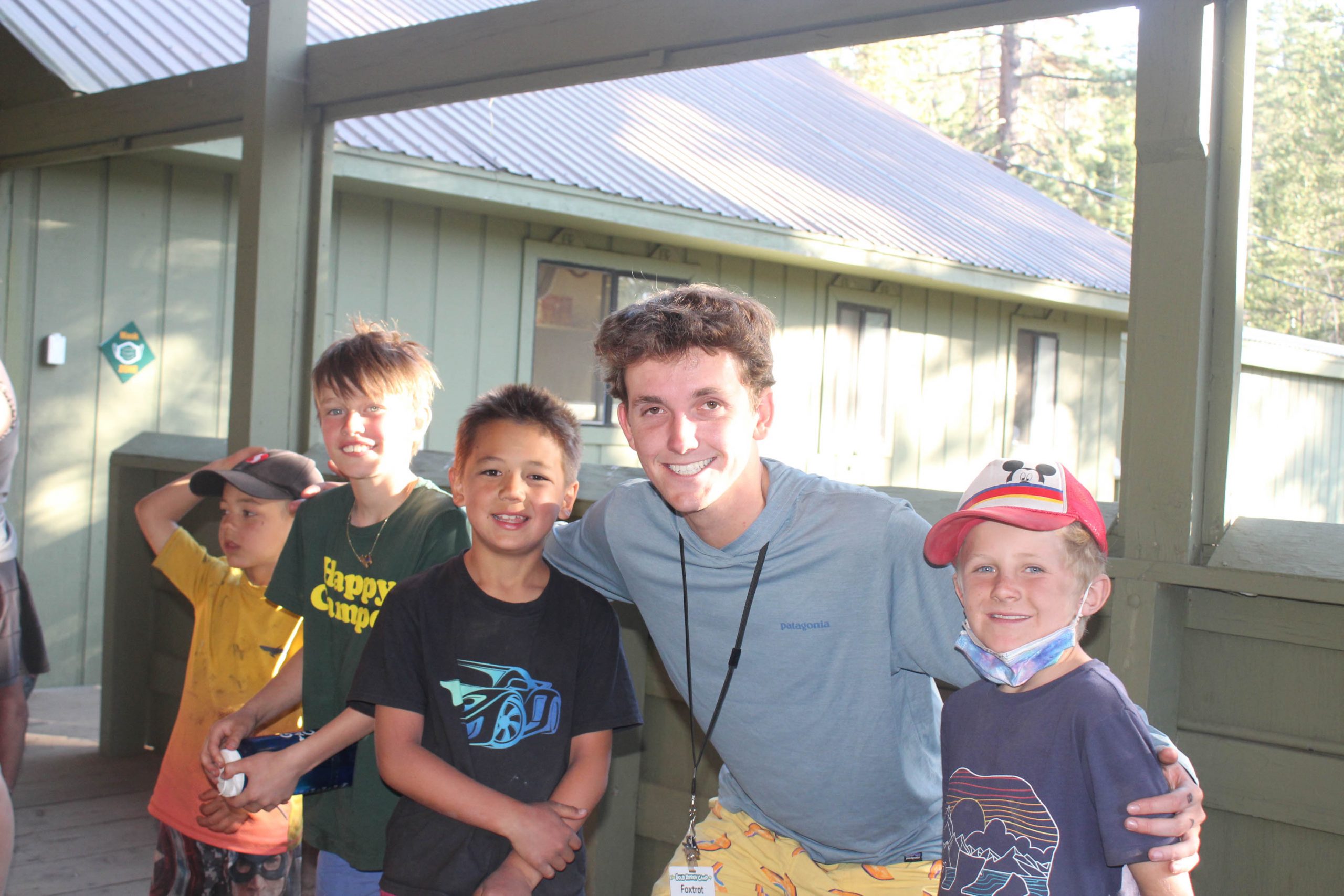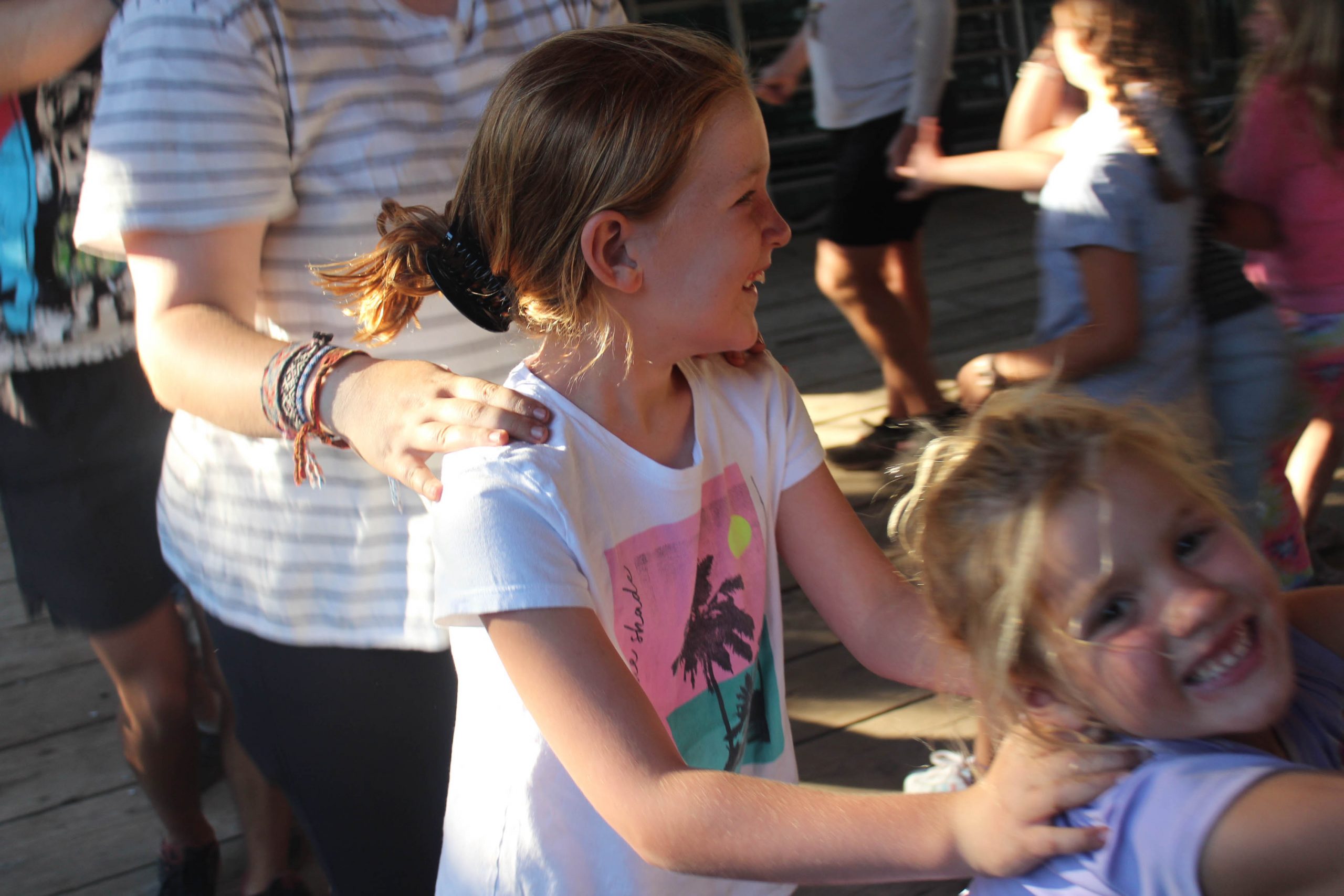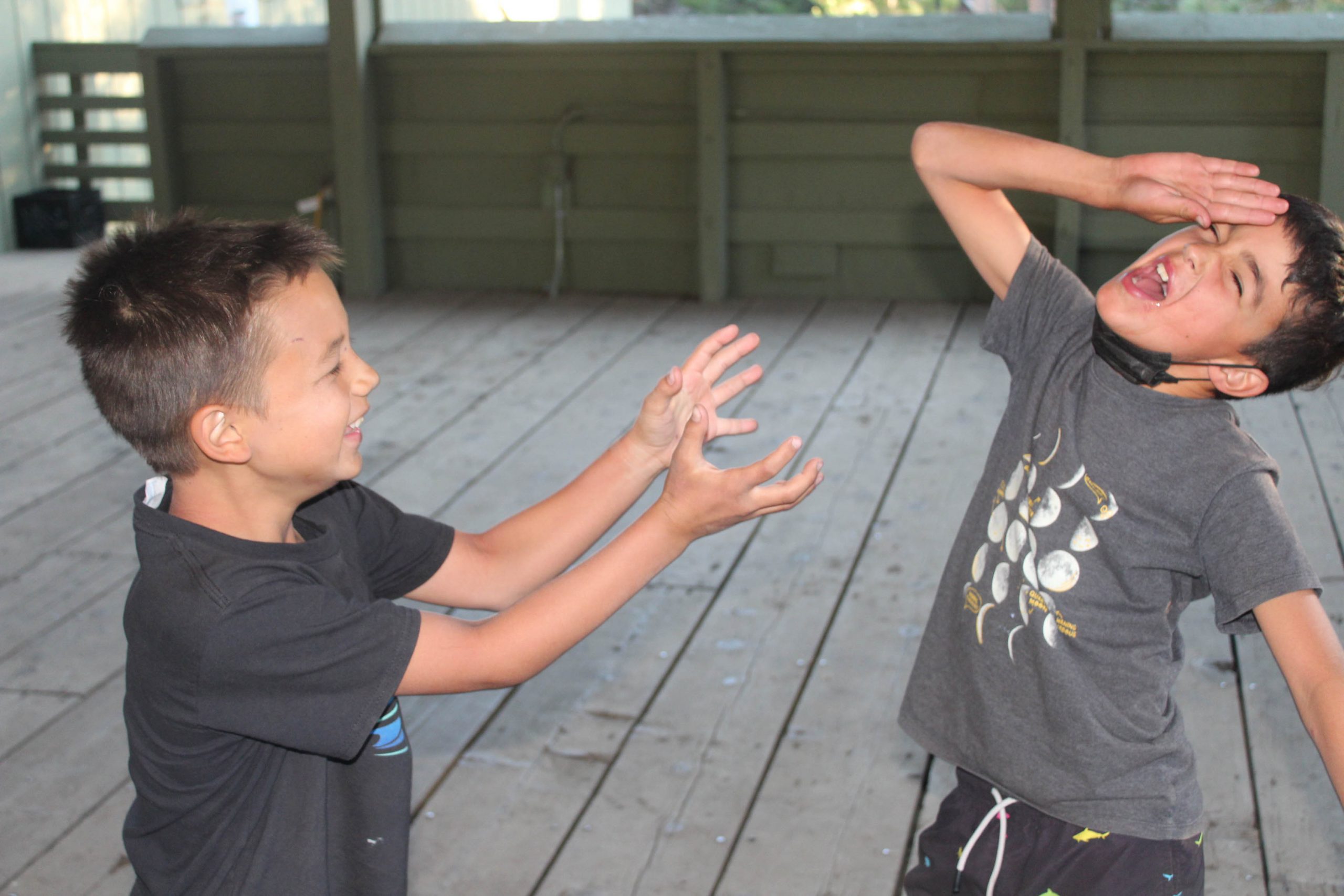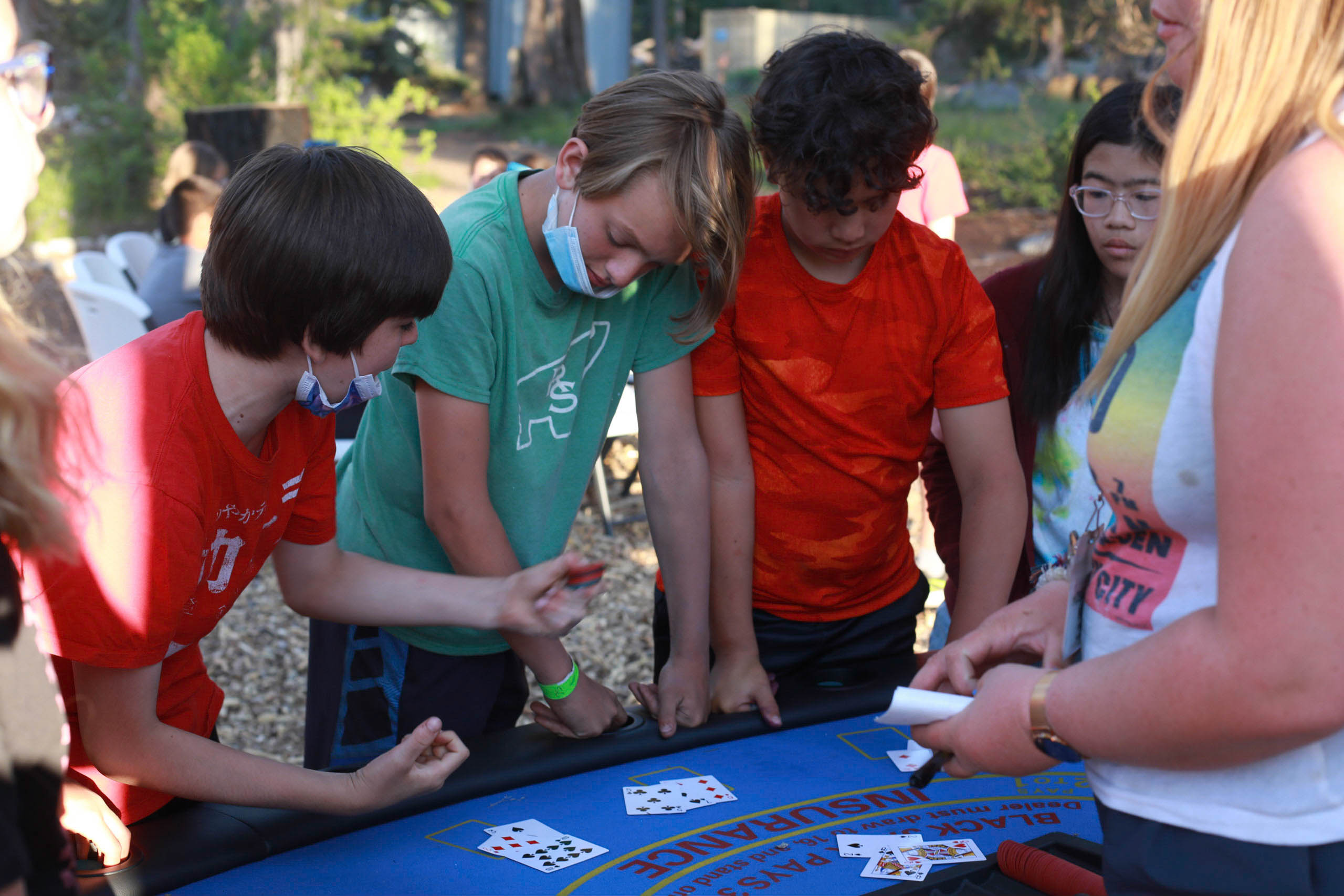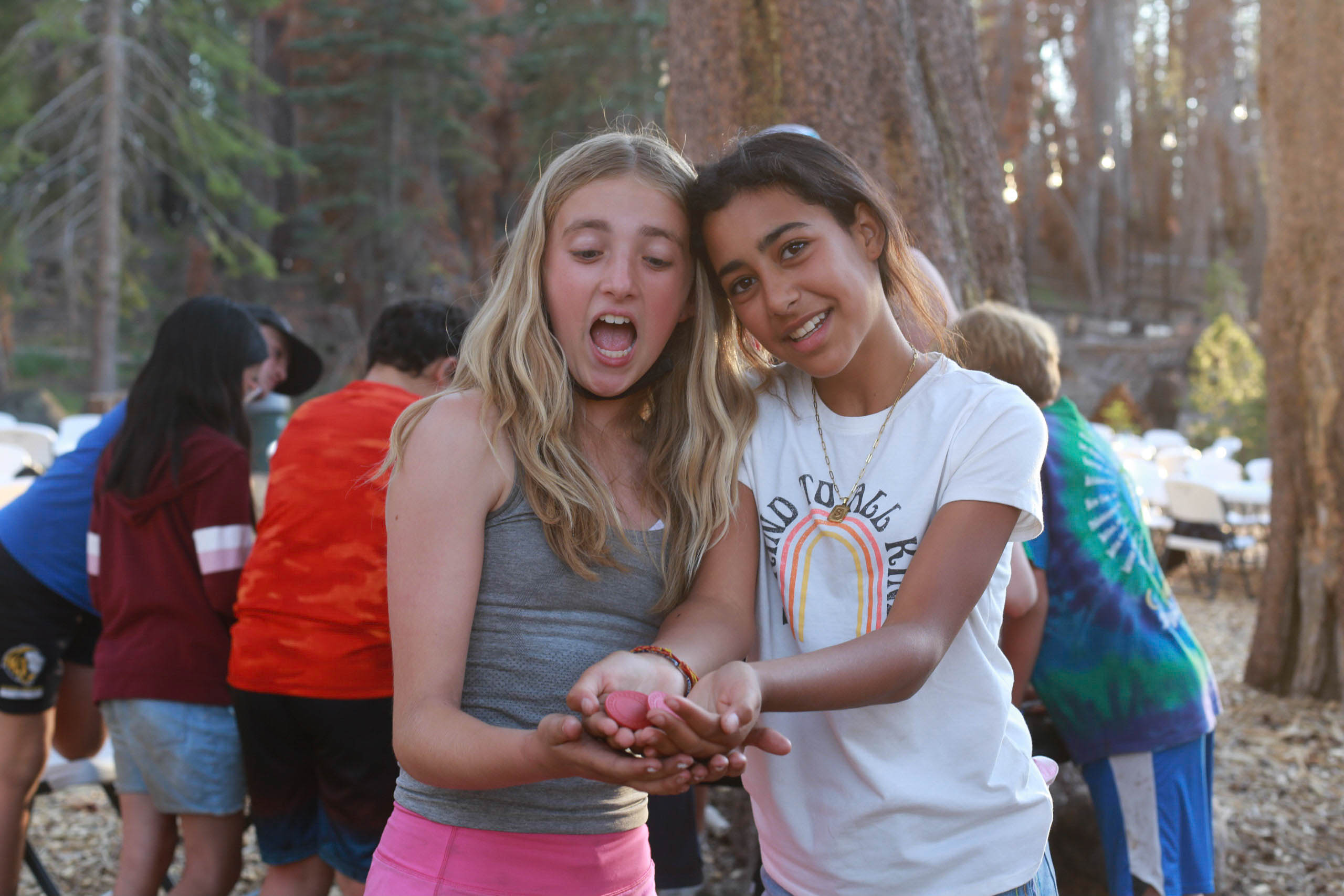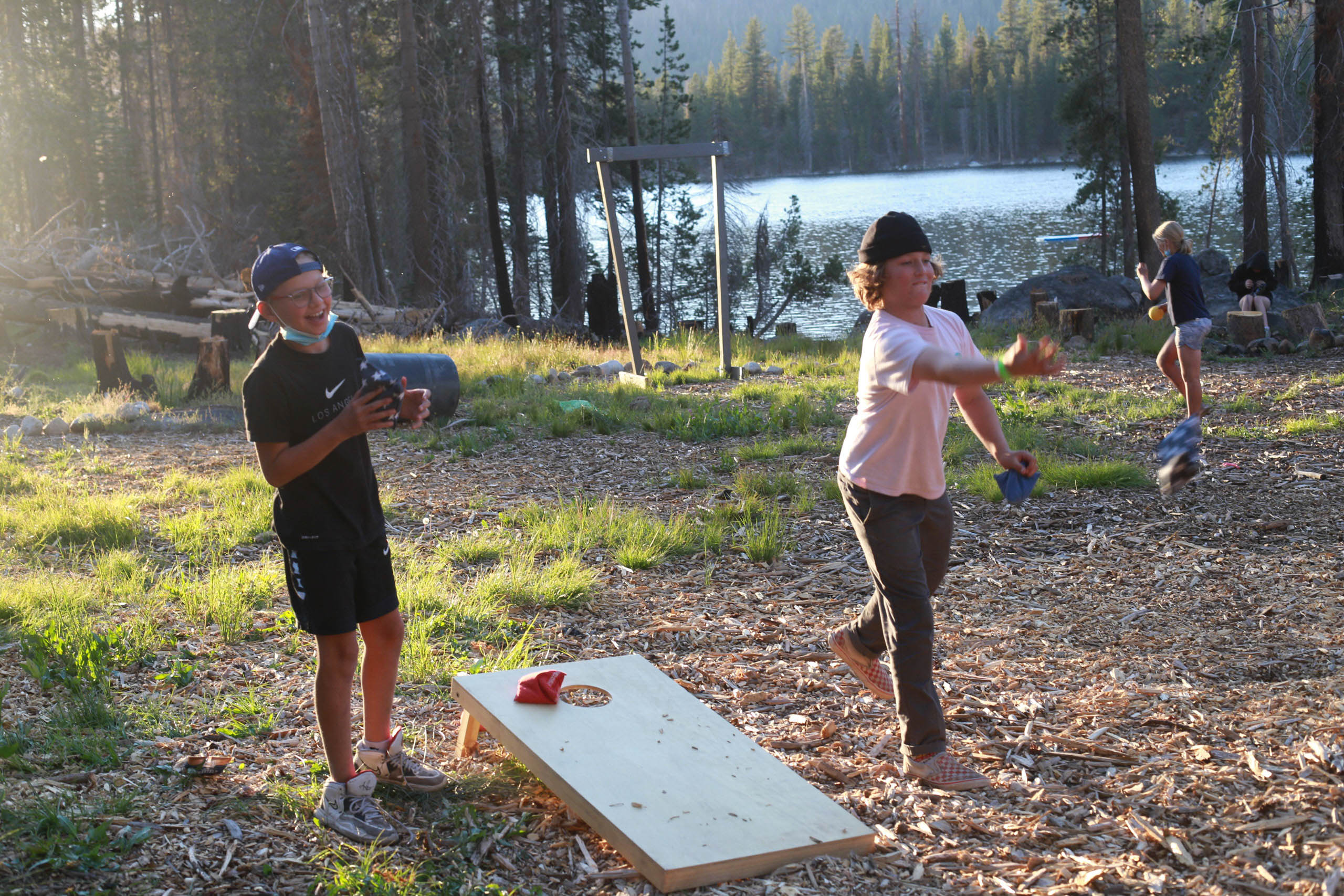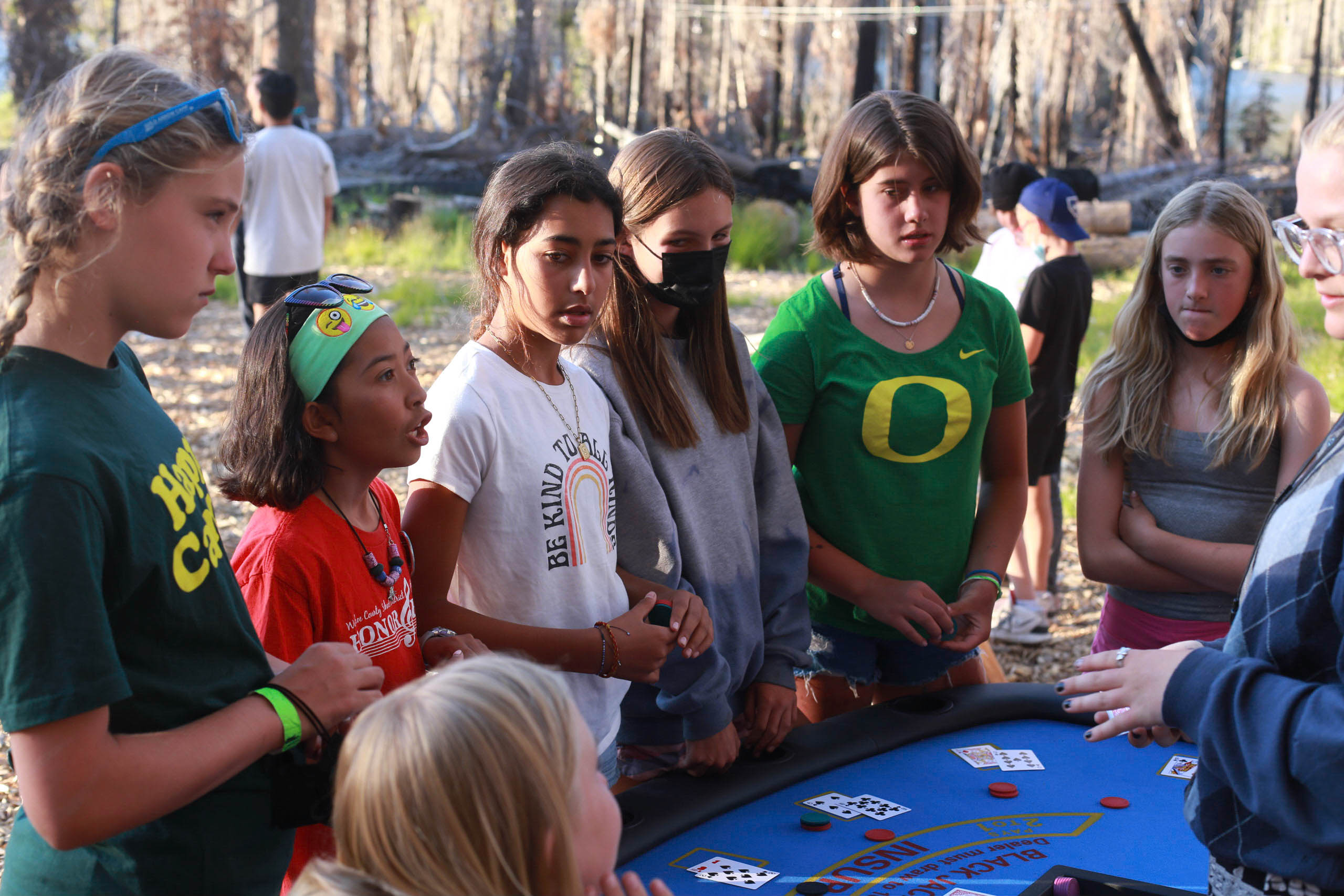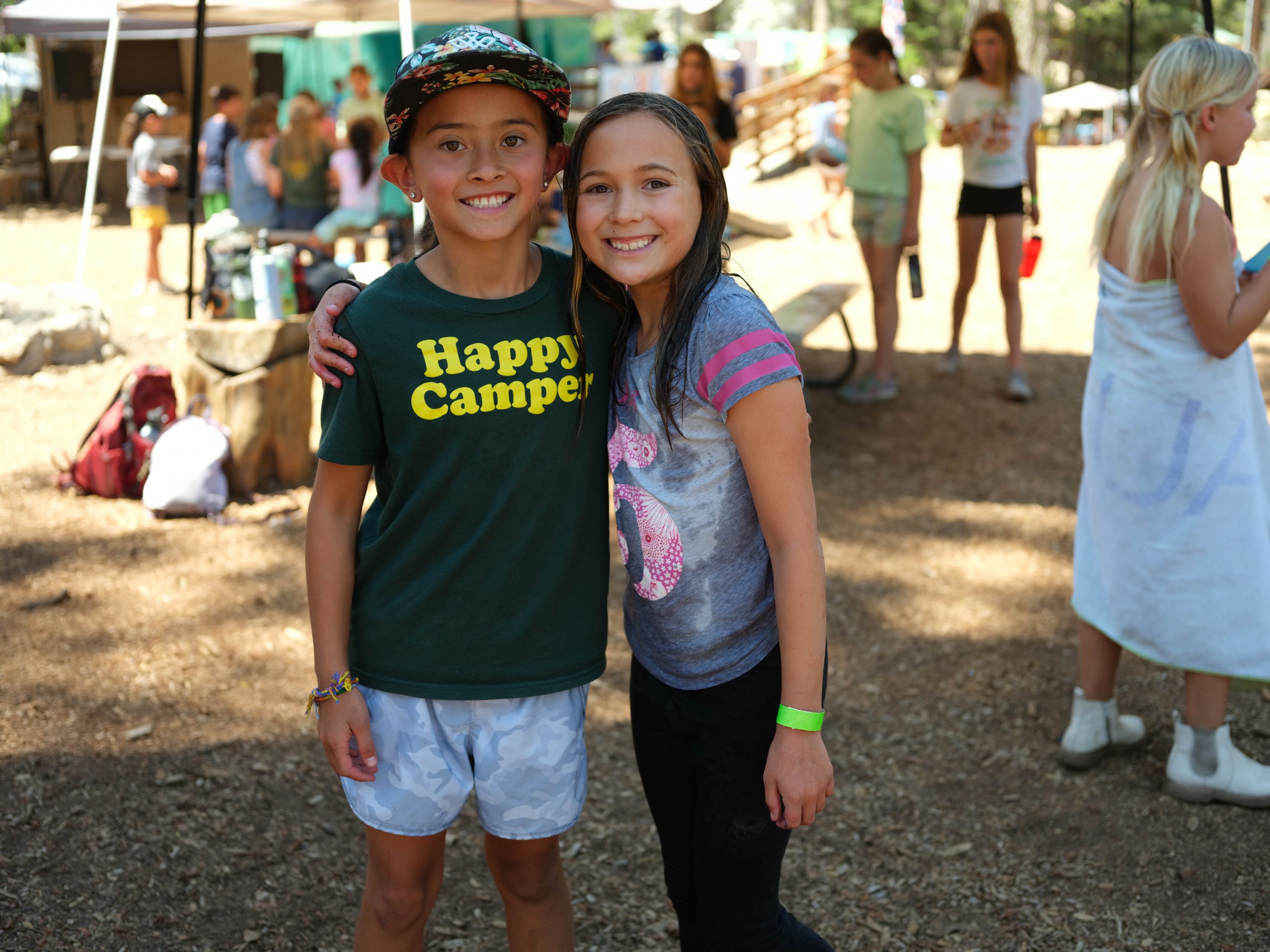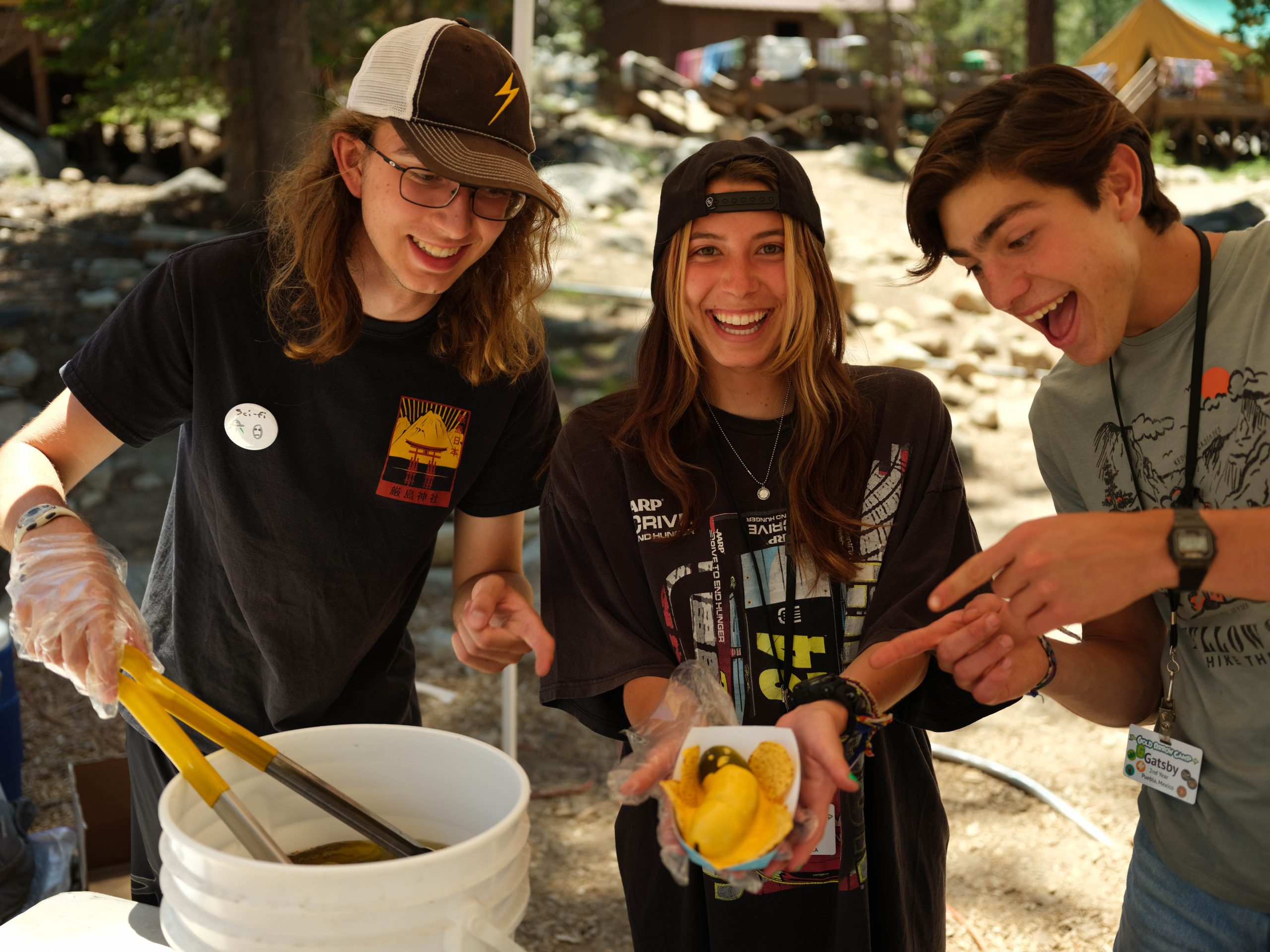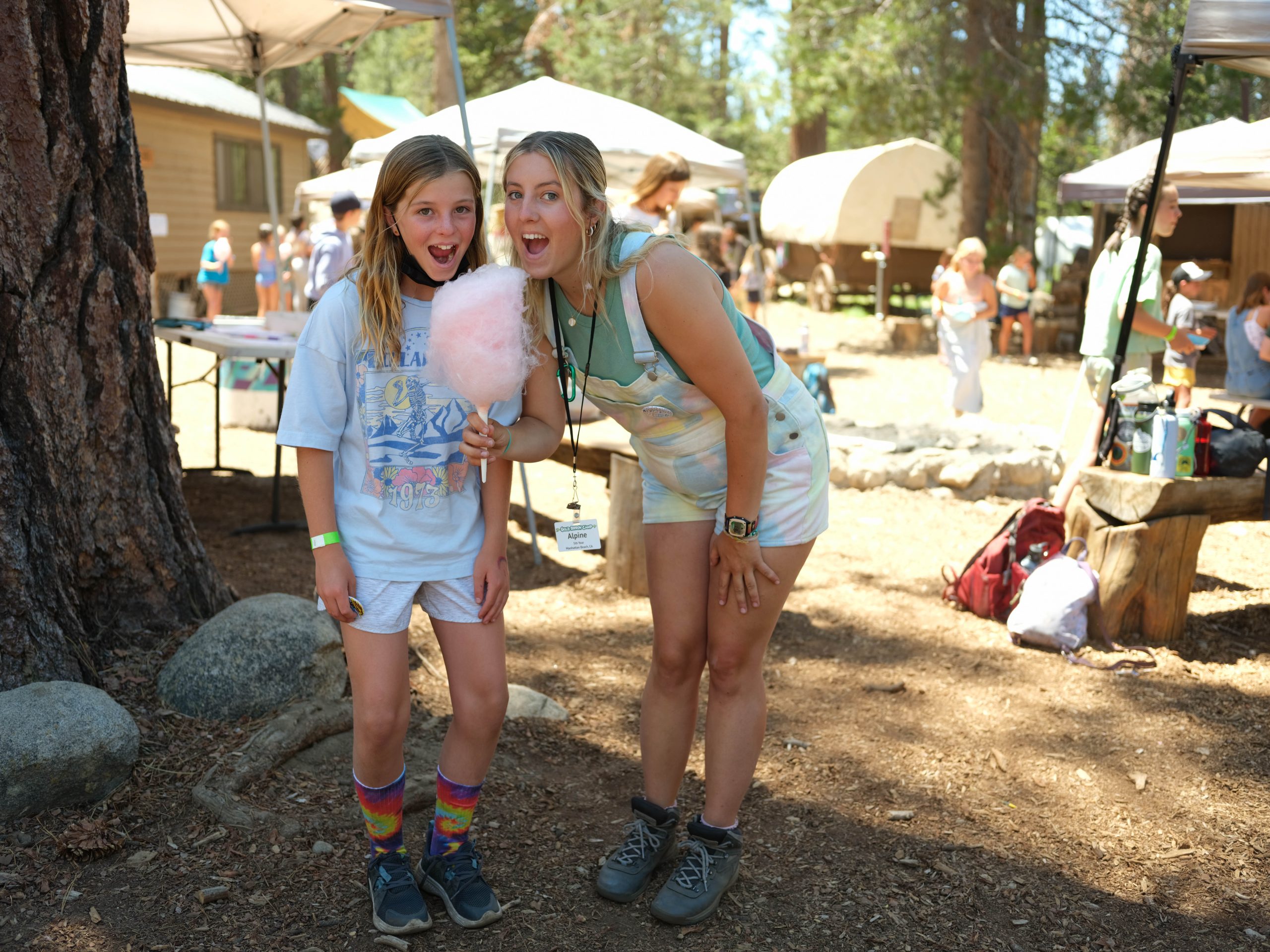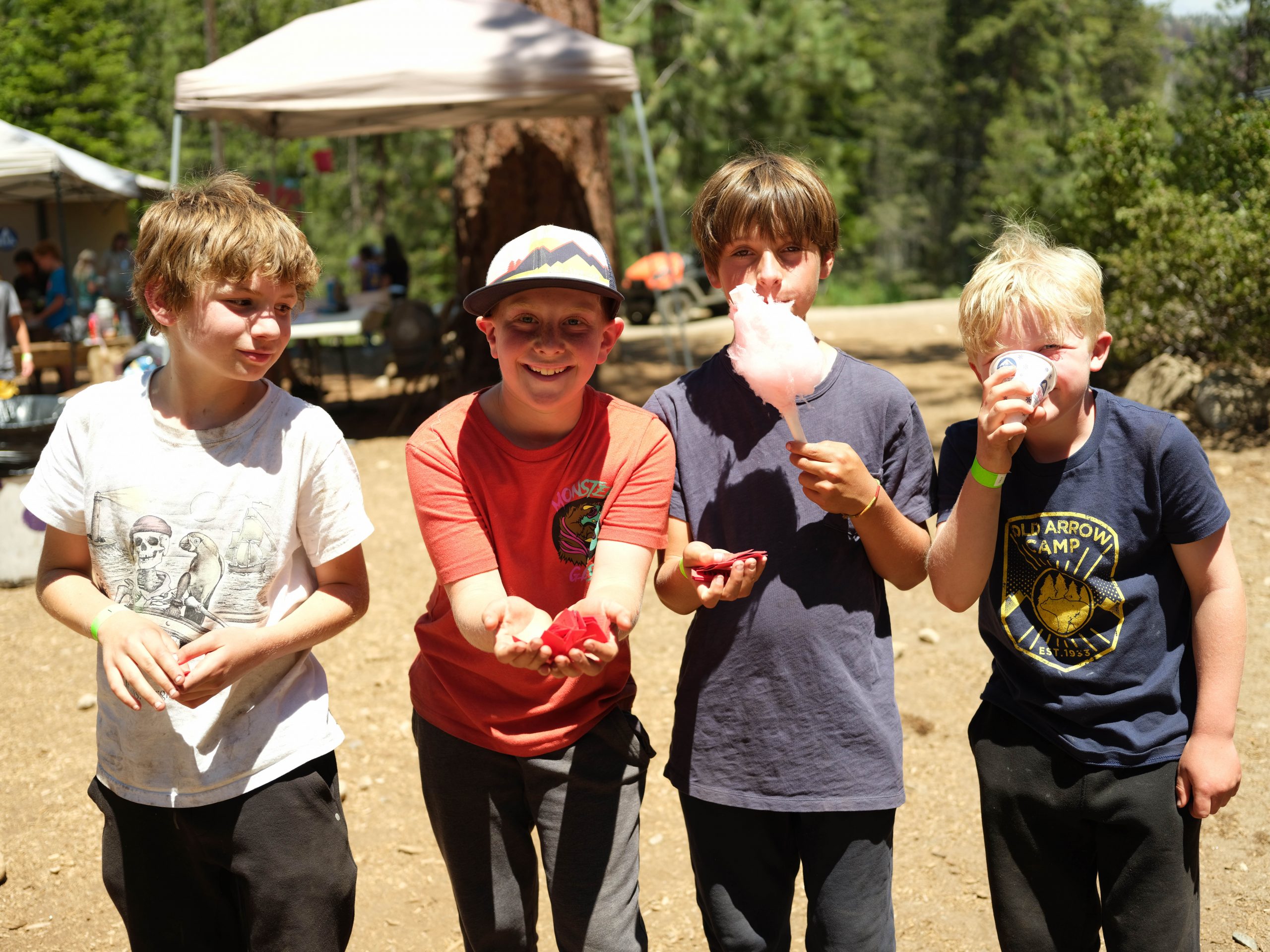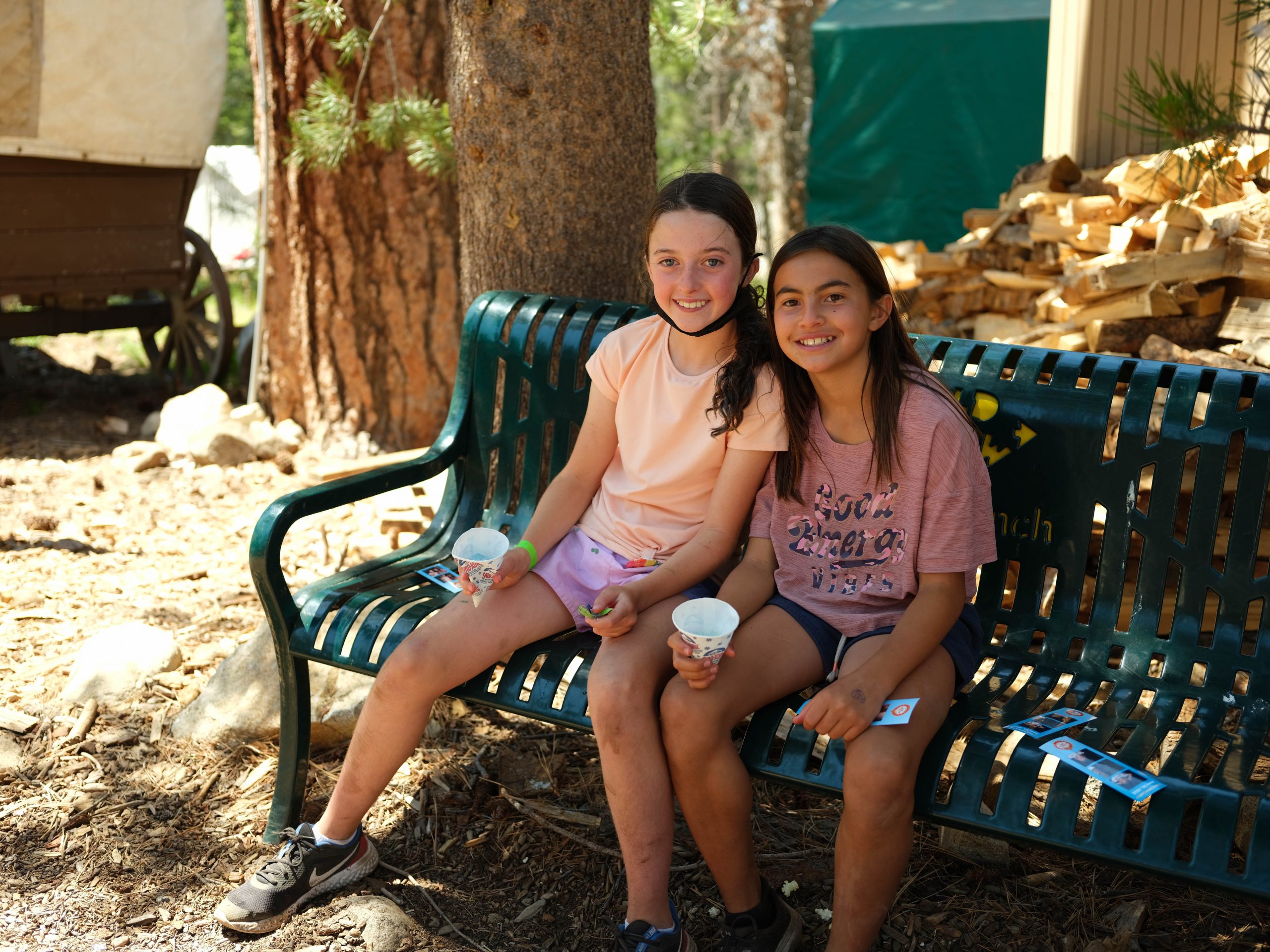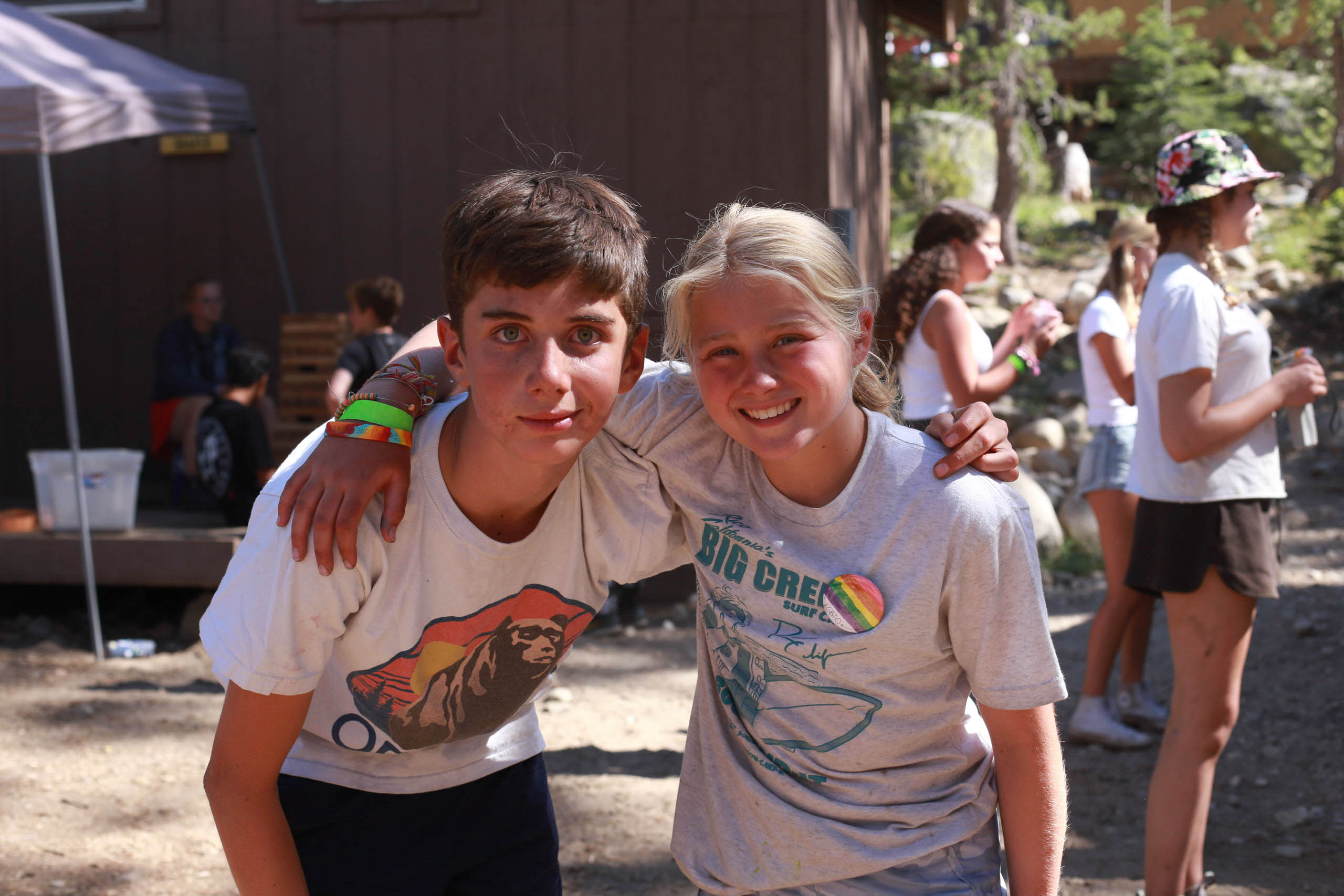Carnival – Session 2
As always, Carnival was a blast for all campers and staff! Check out some highlights from the day here!
Lions’ Social – Session 2
Our Lions campers had a blast at their social on Sunday evening. They had a fun evening of games, laughter, and ice cream!
Bears’ Adventure – Session 2
A highlight of the two-week session for our youngest campers (grades K-3), and their version of backpacking, is Bears’ Adventure. This one-night trip allows campers to experience sleeping outdoors under the stars and cooking over a campfire. Campers’ luggage is taken for them to the campsite, so they are not technically “backpacking,” because they have no pack to carry. With just their water bottle and their positive attitude, they set out from camp singing and talking on their hike.
The best part of Bears’ Adventure is the free time kids get to play and explore the area. For many campers, the longer sticks provide the perfect start to a fort. Others enjoy laying on their sleeping bags talking with friends or silently watching clouds move overhead. Some participate in crafts and games while enjoying being outdoors. For many of these kids, Bears’ Adventure is their first experience “roughing it,” and they absolutely love it.
When they hike back into camp the morning after their adventure, our Bears campers stand a little taller. And their dirty, smiling faces are the best indication that they have experienced the awe of nature.
Tigers’ Social – Session 2
Tigers are our campers heading into 5th and 6th grades. They’re at a great age for age group socializing and events, and they enthusiastically participated in yesterday’s Tigers’ Social, which included socializing, snacks, and a rousing game of Bingo!
Choose Kindness: Kindness Tips of the Day
Download our Kindness Tips of the Day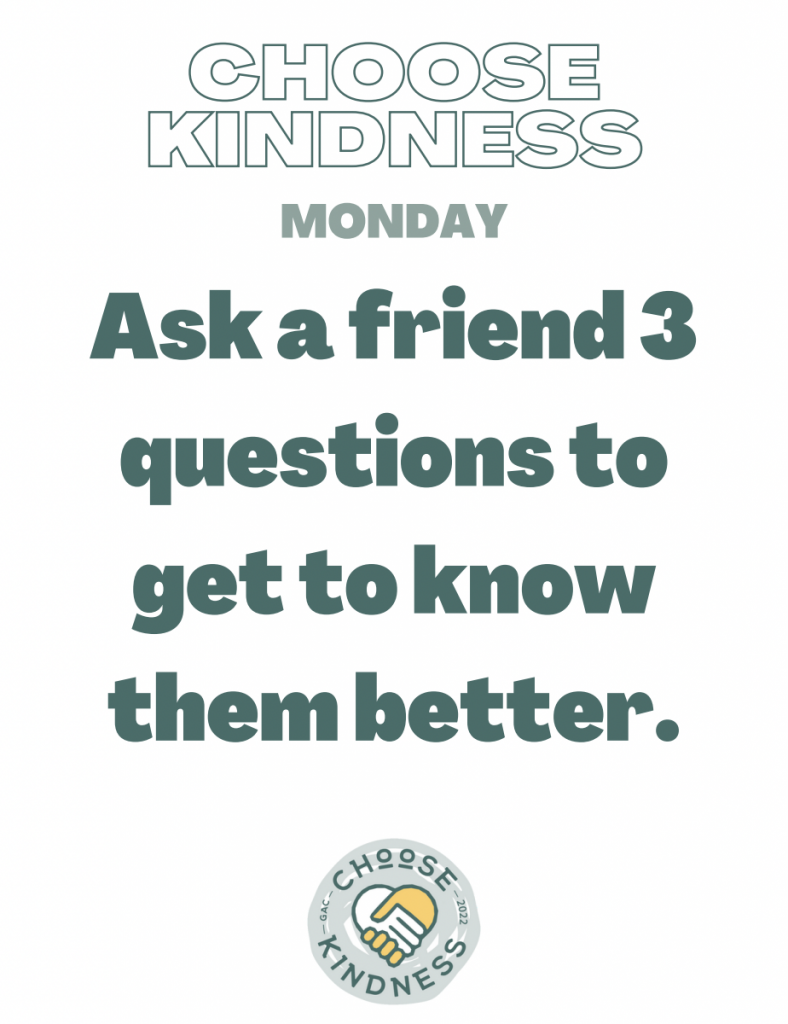
Bears’ Social – Session 1

Our Bears campers had a fun night of dancing and ice cream! We always love watching them socialize with each other and make new friends!
Eagles’ Social – Session 1
Our Eagles campers enjoyed a fun social together this week. On Tuesday, they had a fun evening of casino games, laughter, and ice cream!
Lions’ Social – Session 1
Our Lions campers had a blast at their social on Sunday evening. They had a fun evening of games, laughter, and ice cream!
Carnival – Session 1
As always, Carnival was a blast for all campers and staff! Check out some highlights from the day here!
Session 1 Week 1 Recap
We’ve had a terrific start to Session 1 with a week full of new friendships, new challenges, and a whole lot of choosing kindness!
Our campers and staff have written lots of WOWs, made lots of friends, and challenged themselves to try new things. Our youngest campers (Bears) had a great Bears’ Adventure where they made forts, cooked dinner over a fire, and slept in tents under the stars. Our Bears and Tigers campers had Big Campfire on Saturday and showed off their cabin skits that they had been working on all week. Our Tigers campers also had their social where they played Bingo, had loads of fun, and even got ice cream!
All campers enjoyed carnival on Sunday where we played games, ate treats, and won some prizes! Our older campers (Lions and Eagles) have their Big Campfire this evening, and we are excited to see the performances they’ve planned. Lions had their social on Sunday evening where they practiced friendship skills and played casino games.
Thank you for sharing your campers with us! We have been having fun, making friends and growing this past week, and we’re looking forward to our final few days together this session.
Check out the Outpost Schedule to see overnight trips and special events happening this week!

